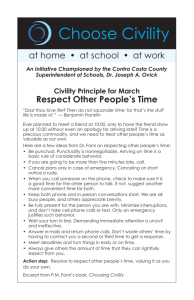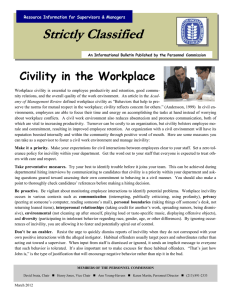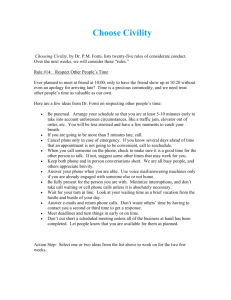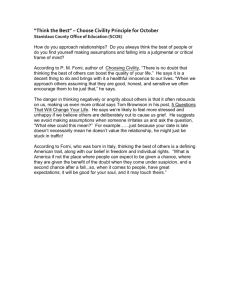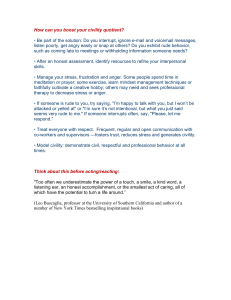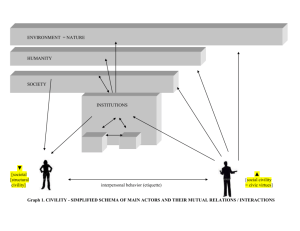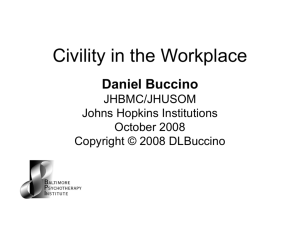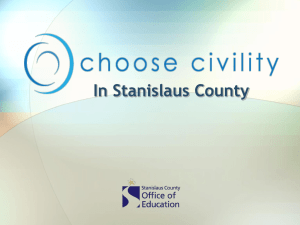Strictly Classified Civility in the Workplace
advertisement
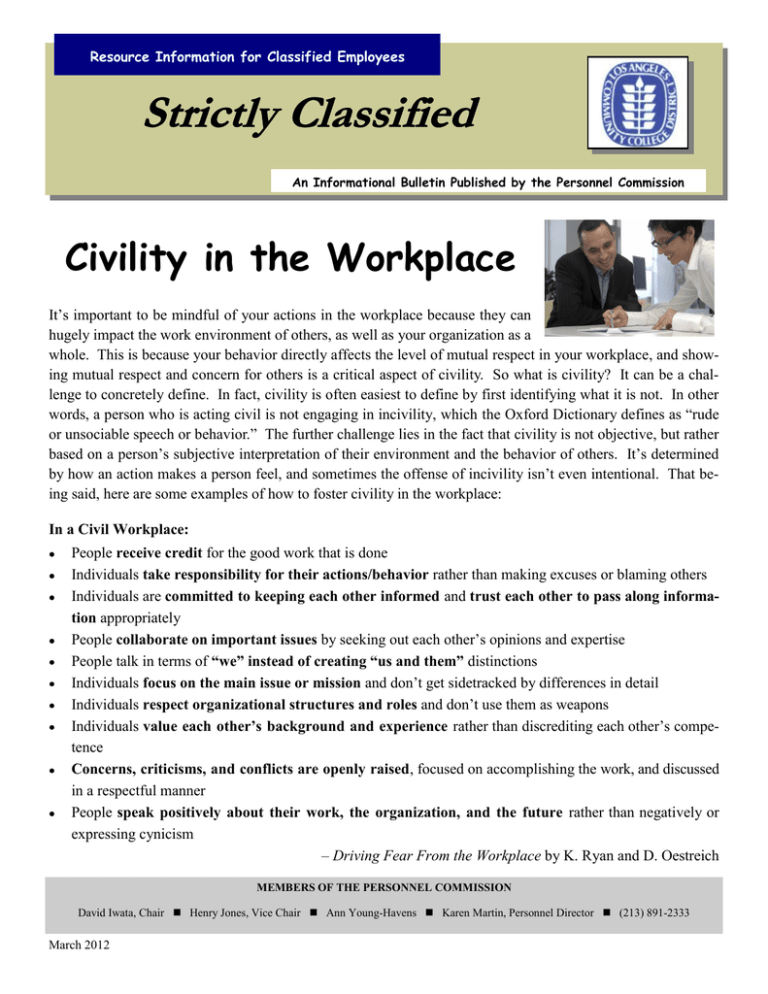
Resource Information for Classified Employees Strictly Classified An Informational Bulletin Published by the Personnel Commission Civility in the Workplace It’s important to be mindful of your actions in the workplace because they can hugely impact the work environment of others, as well as your organization as a whole. This is because your behavior directly affects the level of mutual respect in your workplace, and showing mutual respect and concern for others is a critical aspect of civility. So what is civility? It can be a challenge to concretely define. In fact, civility is often easiest to define by first identifying what it is not. In other words, a person who is acting civil is not engaging in incivility, which the Oxford Dictionary defines as “rude or unsociable speech or behavior.” The further challenge lies in the fact that civility is not objective, but rather based on a person’s subjective interpretation of their environment and the behavior of others. It’s determined by how an action makes a person feel, and sometimes the offense of incivility isn’t even intentional. That being said, here are some examples of how to foster civility in the workplace: In a Civil Workplace: People receive credit for the good work that is done Individuals take responsibility for their actions/behavior rather than making excuses or blaming others Individuals are committed to keeping each other informed and trust each other to pass along information appropriately People collaborate on important issues by seeking out each other’s opinions and expertise People talk in terms of “we” instead of creating “us and them” distinctions Individuals focus on the main issue or mission and don’t get sidetracked by differences in detail Individuals respect organizational structures and roles and don’t use them as weapons Individuals value each other’s background and experience rather than discrediting each other’s competence Concerns, criticisms, and conflicts are openly raised, focused on accomplishing the work, and discussed in a respectful manner People speak positively about their work, the organization, and the future rather than negatively or expressing cynicism – Driving Fear From the Workplace by K. Ryan and D. Oestreich MEMBERS OF THE PERSONNEL COMMISSION David Iwata, Chair Henry Jones, Vice Chair Ann Young-Havens Karen Martin, Personnel Director (213) 891-2333 March 2012 The Benefits of Civility Workplace civility is essential to good community relations, employee productivity and retention, and the overall quality of the work environment. Most employees who experience incivility at work will describe their encounter to someone else inside or outside of the organization; however, employees in a civil environment will boost an organization’s reputation internally and among the community through positive word of mouth. In civil environments, employees are able to focus their time and energy on accomplishing the tasks at hand instead of worrying about workplace conflicts. A civil work environment also reduces absenteeism and promotes communication, both of which are vital to increasing productivity. Turnover can be costly to an organization, but civility bolsters employee morale and commitment, resulting in improved employee retention. You Have the Power to Create Change Listen Speak kindly Assume the best Respect others Be inclusive Acknowledge others Apologize earnestly Assert yourself appropriately Accept and give praise Take responsibility Accept and give constructive criticism Refrain from idle complaints Be a considerate guest Being civil should not be viewed as compromising your true self. Civility should be genuine and come from an honest place. It’s not rolling over and playing dead or being someone you are not. It’s also not avoiding discussion and conflict when necessary or giving up your rights to file complaints or to seek assistance in dealing with difficult people. Civility, honesty, integrity, ethics, professionalism, and leadership are intricately linked. “We never touch people so lightly that we do not leave a trace.” Civility is “a constant awareness that no human encounter is without consequence.” – P.M. Forni
